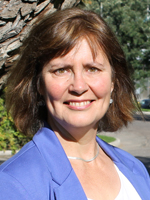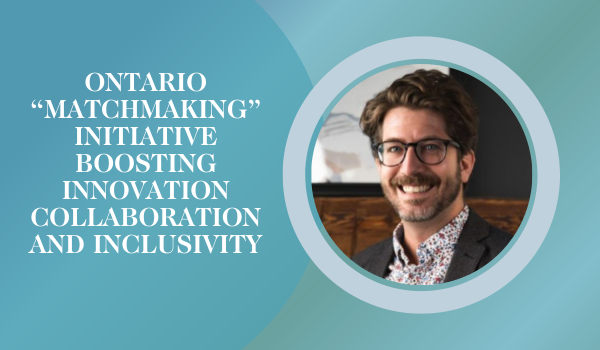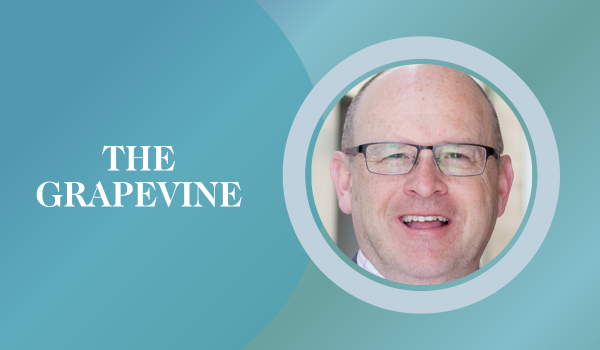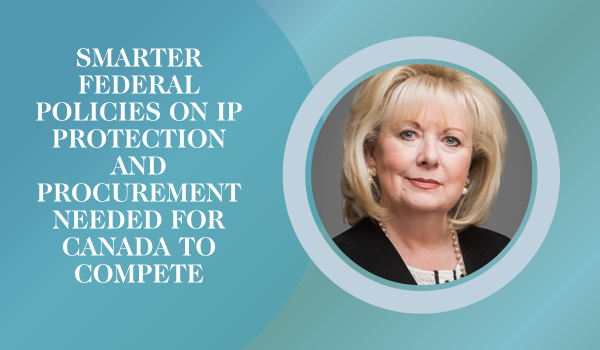University of Saskatchewan researchers pioneer principles for community-engaged research
An international research group including two University of Saskatchewan researchers has developed a set of foundational principles to help guide and enhance community-engaged research.
 Dr. Maureen Reed, PhD, (photo at left) and Dr. Jim Robson, PhD, (photo at right) share the United Nations Educational, Scientific and Cultural Organization (UNESCO) chair in biocultural diversity, sustainability, reconciliation and renewal at the University of Saskatchewan. Both are faculty members in USask’s School of Environment and Sustainability.
Dr. Maureen Reed, PhD, (photo at left) and Dr. Jim Robson, PhD, (photo at right) share the United Nations Educational, Scientific and Cultural Organization (UNESCO) chair in biocultural diversity, sustainability, reconciliation and renewal at the University of Saskatchewan. Both are faculty members in USask’s School of Environment and Sustainability..jpg)
Research hierarchies and power relations continue to favour Western academic researchers who remain the gatekeepers of knowledge production and validation.
To counter this imbalance, they and their international colleagues developed seven principles aimed at helping transdisciplinary researchers engaged in intercultural, collaborative research in a broad range of topics and working with local people, Indigenous groups and communities in Canada and internationally.
“The whole idea is that we as university researchers, partner organizations and collaborators are responding to community needs and supporting them through community-engaged research,” Robson said in an interview. “It is working with communities rather than working on communities or studying them.”
The seven principles “are not a blueprint, they’re not a strict code of conduct,” Reed told Research Money. “It’s a launching pad. People can try them out and see what fits and how those principles might be adapted over time.”
Robson pointed out that the nature of research and how researchers are expected to conduct it – even those who work in the “hard” sciences such as chemistry and biology – has changed. It’s no longer appropriate, especially for empirical field-based research, to just go out, collect data and return to the lab.
“These scientists are more in contact with civil society, with communities,” he said. “As soon as it brings them into contact with members of the public, with civil society, with rural communities, then some of these principles may well come into play and resonate.”
Reed and Robson have colleagues in soil science and hydrology who are now working in partnership with the public and communities. For example, one water modeller realized he needed to talk with people in an Indigenous community to better understand how local water systems are used and the flow regimes observed by community members.
“Community-engaged research also enhances and improves the research,” Reed said.
“We are not trying to supplant fundamental science, but rather to point to the connections between science and society, and to make the work we are proposing legitimate, relevant, and to give it the recognition it deserves within the academy.”
Increasingly, university research ethics boards require researchers to document benefits, risks and commitments for communities involved in research. Researchers may be required to establish formal relationships with community leadership and follow local decision-making and organizational structures.
This means the principles for community-engaged research may be applicable in other academic fields besides environmental and sustainability research, and to other types of organizations, Reed said. “When governments or industry or other organizations are doing things that affect communities – and I say that word very broadly – then these principles may offer some guidance for them.”
Principles developed cooperatively over several years
The principles were developed beginning in 2018 through a community of practice built through the UNESCO chair at USask. They represent the consensus of a diverse group that included local and Indigenous people, non-governmental agency members, and early-career and established academics from Canada, Argentina, Bolivia, Germany, Mexico and South Africa.
Team members span the natural and social sciences and humanities, including biology, forest and ethno-ecology, agronomy, history, philosophy, water science and engineering. Most work in areas somewhat removed from their training, and identify as interdisciplinary and even transdisciplinary sustainability scientists, practitioners and knowledge holders.
Reed and Robson are the lead authors of a paper published in the British Ecological Society’s journal People and Nature, which described the seven principles:
- honour self-determination and nationhood
- commit to reciprocal relationships
- co-create the research agenda
- generate meaningful benefits for communities.
All benefits should be tied to local, on-the-ground needs and realities, and therefore align with the interests, needs values and worldviews of the communities where research takes place.
- approach research in a good way: embed relational accountability.
Researchers are now expected to enter a research relationship with a significant amount of self-awareness, critical self-evaluation about how knowledge is generated, and what research methodologies may be suitable.
- ensure equity, diversity, and inclusion
- emphasize critical reflection and sharing.
The seven principles are meant to be interconnected, forming an interwoven, non-hierarchial knot.
In accordance with the principles, knowledge co-production means creating opportunities for community collaborators to become directly involved in traditional academic spaces, Reed and Robson said. This includes academics inviting community collaborators to participate in academic symposia, serve as student mentors, participate in conferences, co-author academic papers, engage university leaders in shaping future research agendas and themes, and work to break down systemic barriers including financial costs, institutional norms and prejudices, and logistical challenges.
The first principle – honour self-determination and nationhood – recognizes that Indigenous and other communities with a long-standing presence and connection to the land they’re on have inherent rights, including the right to self-determination, Robson said.
Self-determination in the first principle refers to “the collective, a community, the right to determine the path that they take forward and the ideas of sovereignty,” he explained.
“If you go into it with that [first principle] as the foundational piece, then that will shape your relationships, how you build relationships, the work that you do, how you do things together, so that these other principles will follow.”
The principles are meant to help guide not only current academic researchers, but graduates who often go on to work for consultant firms, government or different industry sectors.
Reed’s Master’s students, for example, study soil science. But their research also includes a community-engagement component.
“We want to know what are the questions that communities have and how can we ensure that we’re answering their concerns related to the potential impacts of, for example, mining or [electricity] transmission corridors,” Reed said.
Robson said students in conservation biology come to understand that the issues in their field are essentially people-centred. “So their focus changes. They have to then start delving into working with people to get to the conservation outcomes they’re interested in.”
Improvements needed in accessing and delivering research funding
Government initiatives in Canada are moving in the right direction in fostering community-engaged research, especially with Indigenous peoples and communities, Reed and Robson said.
For example, the federal Tri-Agency research granting agencies are implementing a strategic plan, launched in 2020, to support Indigenous research and research training in Canada. Ottawa recently extended the timeline for the plan to March 31, 2026.
However, there’s still lots of room for improvement when it comes to funding agencies issuing calls for research proposals and how funding is allocated, Reed and Robson said.
Federal granting agencies now draw on Indigenous expertise in developing some calls for proposals, but developing these calls with other kinds of partners (academic researchers themselves, community-based organizations and underrepresented groups, for example) would be helpful, Reed said.
The funding grant application processes are very difficult to navigate, she said. “You really have to be a technical expert in the system. Granting agencies have made some minor changes, but some universities now have ‘experts’ who simply help people navigate the portal. This is beyond what other universities can provide let alone community organizations.”
There are often significant restrictions put on funding that limit how much benefit community partners can secure from participating in the research, Reed said. Often community participants can’t be paid or are limited by the “tasks” they’re expected to take up. “We are leading a research training partnership and it severely restricts how practitioners can engage in the work because they are not academics or university students.”
This funding imbalance is even more pronounced in international work where there may be assumptions that funds established by agencies in the Global North will be led by academics in institutions located there, and that academics in the Global South may all benefit from “capacity development” rather than intellectual engagement, Reed said.
Another challenge she and Robson pointed to is that there’s typically little funding offered by granting agencies to support the time and resources it takes to develop meaningful and trusting relationships between academic researchers and community-based researchers.
It would be helpful if there were more long-term grants, perhaps in stages, to enable these relationships – which are key to successful community-engaged research – to be developed, they said.
“At the other end of the research process – when results are due – there is very little time or money allocated to how the research will be used to generate impact,” Reed said. “Some kinds of outputs take considerable time to complete. Researchers who put ‘community outputs’ before ‘academic outputs’ (such as published papers), are often penalized when it comes to annual reviews or tenure/promotion decisions.”
Universities in Canada, along with the Tri-Agency funding agencies, have committed to reconciliation with Indigenous peoples and to equity, diversity and inclusion, Reed and Robson noted.
But, said Reed: “They really need to take a dive through the structures that they have– maybe they need to talk to the researchers – and identify what are the barriers and how do we overcome them.”
R$
Events For Leaders in
Science, Tech, Innovation, and Policy
Discuss and learn from those in the know at our virtual and in-person events.
See Upcoming Events
You have 0 free articles remaining.
Don't miss out - start your free trial today.
Start your FREE trial Already a member? Log in
By using this website, you agree to our use of cookies. We use cookies to provide you with a great experience and to help our website run effectively in accordance with our Privacy Policy and Terms of Service.





